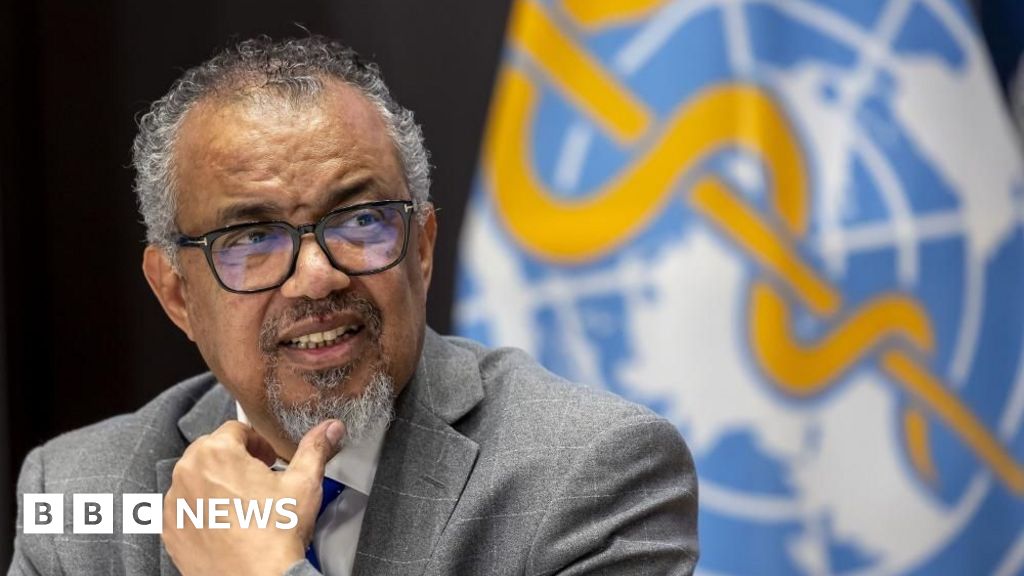The head of the World Health Organization (WHO) and other UN staff were at Yemen’s international airport in Sanaa on Thursday during Israeli airstrikes, which are reported to have killed at least six people.
WHO Director-General Tedros Adhanom Ghebreyesus said they were about to board a plane when the attacks began.
The Houthi-run Saba news agency said three people were killed at the airport and 30 wounded. It said three more people were killed and 10 wounded in western Hodeidah province.
The Iran-backed rebel group described the attacks – which also hit power plants and ports – as “barbaric”. Israel’s military said it carried out “intelligence-based attacks on military targets”.
It is unclear whether those killed were civilians or Houthi rebels.
In a statement on X, Dr. Tedros that he was in Yemen “to negotiate the release of UN staff prisoners and to assess the health and humanitarian situation” in the country. He gave no further details about who the UN prisoners were.
Referring to the strikes at Sanaa airport, he said: “The air traffic control tower, the departure lounge – just a few meters from where we were – and the runway were damaged.
“We will have to wait for the damage to the airport to be repaired before we can leave,” added Dr. Tedros.
UN Secretary-General António Guterres called the strikes “particularly alarming”.
“I deplore the recent escalation between Yemen and Israel and remain deeply concerned about the risk of further escalation in the region.” He wrote on X.
In a statement, the Israel Defense Forces (IDF) said its “fighter jets carried out intelligence-based strikes on military targets belonging to the Houthi terrorist regime on the western coast and interior of Yemen”.
It targeted “military infrastructure” at Sanaa’s airport as well as the Hezyaz and Ras Kanatib power plants and locations in the ports of Al-Hudaydah, Salif and Ras Kanatib on the west coast, the IDF said.
In comments shortly after the attacks, Israeli Prime Minister Benjamin Netanyahu said it would “continue to cut off the terrorist arm of the Iranian axis of evil until we complete the job”, adding “we have only just begun [the Houthis]”.
Early Friday, the IDF reported that a missile fired from Yemen was intercepted before it crossed into Israeli territory.
Mohammed Ali al-Houthi, head of the Houthis’ Supreme Revolutionary Committee, called Thursday’s strikes on Yemen “barbaric” and “aggressive.”
He said “confrontations with American and Israeli arrogance” will continue until the conflict in Gaza ends.
Several people injured in the attacks at Sanaa airport told the Houthi-run Al Masirah television station that the runway was hit three times before the airport’s control tower was also hit.
A man who identified himself as Dr Abbas Rajeh said the police hospital where he works was treating 10 patients after the attacks – one was already dead, another was in critical condition and others had minor injuries or broken bones.
Iran described the attacks as a “clear violation of international peace and security”.
Houthi rebels have been attacking Israel since the first months of the Gaza war, which began in October 2023.
A Houthi missile attack injured more than a dozen people in Israel last week.
Israel has carried out periodic strikes against the Houthis in retaliation.
Earlier this week, Israel’s defense minister said the country was preparing to “strike hard” on the Houthis and warned it would “strike” the group’s leadership.
The Houthis are an armed political and religious group supported by Iran. The group has ruled large parts of western Yemen, including the capital Sanaa, since ousting the internationally recognized government in 2015.
